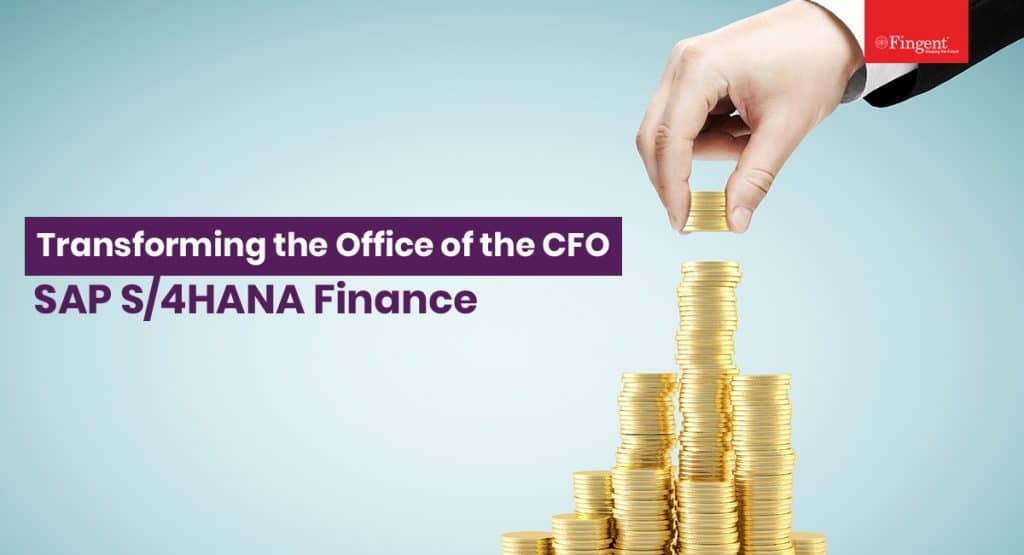Tag: Business Intelligence in Finance
Digital technologies are evolving at an unprecedented rate. Major innovations, such as artificial intelligence tools, machine learning software, cloud computing resources, and big data, have already reshaped the landscape of countless industries and actualized new financial concepts such as blockchain and cryptocurrencies.
As business leaders apply these technologies to their digital transformation initiatives, many focus on functions like sales, customer support, and demand forecasting. While these are mission-critical functions, finance must be front and center during any digital transformation discussion.
Whether your team manages a standalone financial business or is responsible for overseeing an organization’s financial functions, you must embrace the digital world. Let’s take a closer look at the financial technology (FinTech) landscape, identify some ongoing challenges facing the financial industry, and shed light on some tech trends you can adopt to strengthen your competitive advantage.
Read more: Top Ways Business Intelligence In Finance Can empower CFOs Today!
The Financial Business Technology Landscape
FinTech is primarily responsible for the evolution of the financial business landscape, and over the last few years, the FinTech sector has exploded. As of 2023, there are more than 26,000 FinTech startups globally, as well as hundreds of pre-established FinTech developers.
The growth of the FinTech market has largely been supported by venture capital (VC) funding. Though numerous FinTech sectors have received significant financing from VC rounds, three stand above the rest.
Between 2016 and 2021, the following three sectors received over $5 billion in VC funding:
- Capital markets ($8.07B)
- Payments ($6.03B)
- Wealth management ($5.43B)
Digital lending, FinTech tools for small-to-medium-sized businesses, and banking-related projects also received significant funding, though these amounts fell below the $5B mark.
The Top Challenges Facing the Finance Industry
The modern financial business landscape has largely been shaped by uncertainty, market volatility, rapidly shifting consumer trends, and the emergence of increasingly sophisticated technologies.
Businesses in virtually every industry continue to face disruptions and supply chain challenges, hurdles that have placed an additional burden on finance teams, as they are tasked with helping their organizations prepare for the unexpected. Unfortunately, antiquated solutions and strategies don’t provide the agility necessary to promote adequate resilience.
From the financial business perspective, the digital world has led to the development of two new core challenges: accessibility and racing to keep up.
First, consumers expect to be able to access services, accounts, and support on their terms. To meet this demand, financial businesses must develop user-friendly mobile apps that increase the accessibility of their services and work to empower consumers.
The second challenge is interconnected with the first: New technologies are arising so rapidly that some businesses need help to keep pace. Those that struggle fall behind in the digital arms race will cause financial organizations to lose valuable market shares, potentially fading into obscurity.
Read more: Technology in Finance: What to look out for in 2023!
Changing Finance to Thrive in the Digital World
Fortunately, organizations can overcome these challenges by adopting finance technology trends and implementing robust new software solutions.
Organizations committed to reinventing themselves must develop a cohesive digital transformation strategy. As part of the process, business leaders must identify any functions and processes that need to be retired, updated, or improved. From there, they can then begin exploring solutions to enhance the agility and versatility of their business.
Conducting extensive market research is also essential to digital transformation. Financial businesses need to step into the minds of their audience and determine what features, capabilities, and tech services are at the top of their priority lists. Only then can businesses strategically invest in new technologies and solutions that will align with the needs of modern consumers.
Read more: Data Analytics in Financial Services and Banking
Finance Technology Trends that Can Give Your Business an Edge
If your organization is on the precipice of a digital transformation but is still determining where to focus its efforts, examining current FinTech trends is an excellent place to start. A few of the trends in the finance industry include:
1. Self-Service Tools
Most consumers lead hectic lives, which means that many of them don’t want to have to stop in a branch or waste precious time seeking phone-based support. Instead, they’d prefer to have access to user-friendly self-service tools so that they can access support or manage their account whenever is most convenient for them.
Therefore, you should implement customer-facing tools and features that empower your consumers. The easier your services are to access, the better, so make sure that clients can reach these tools via various channels, including desktop and mobile devices.
2. Sophisticated Mobile Apps
The rise of digital-only banking has forever changed customer expectations regarding financing. Digital financial institutions have shown consumers that managing every aspect of an account is possible without ever setting foot in a branch.
While you do not necessarily have to transition to a digital-only business model, you need to provide your consumers with access to a high-quality mobile app that is easy to navigate, simple to use, and reliable.
3. Embedded Finance
The embedded finance technology ecosystem has become too big to ignore. By joining this growing sector, you can create new revenue streams and expand your organization’s reach within the finance industry.
Of the various types of embedded finance solutions, “buy now, pay later” (BNPL) has become especially popular. It is a sales model that allows customers to make purchases immediately but pay for the goods via a set number of more-affordable installments. In 2021, BNPL transactions totaled over $120B, and they are expected to reach a value of $576B by 2026.
Read more: How Embedded Finance will Transform the FinTech Landscape in 2023!
Reinvent Your Finance Business with Fingent!
According to Deloitte, the rapidly-growing FinTech industry will reach a market size of $188 billion by the end of 2024. This statistic illustrates how bank executives and business leaders across the financial industry are embracing digital transformation. In fact, 66.7% of bank executives believe FinTech will “impact wallets and mobile payments globally,” according to Statista researchers.
If your organization wants to keep pace with forward-thinking financial businesses, it must reinvent itself for the digital world. Fingent can help you do that via our financial software development services. We develop highly-secure, purpose-built solutions, such as cash management software, mobile and internet banking apps, digital finance and accounting tools, and other applications that will enable you to thrive in this rapidly evolving industry.
Stay up to date on what's new

Featured Blogs
Stay up to date on
what's new



Talk To Our Experts
The pandemic is now the biggest and most critical challenge of traditional banking. Some of these challenges are revenue pressure, data security, customer service management, data collection and analysis, risk management, and so on. These are the warning lights and alarm bells that call for caution over emerging risks. AI (Artificial Intelligence) has gained recognition as an effective solution.
AI is empowering the banking industry to provide individualized frictionless customer experiences. It is driving customer loyalty and profitability by automating banking processes.
In this article, we will discuss how AI can resolve banking challenges. We will also discuss some of the common challenges banks might encounter in implementing AI and how a tech partner can help deploy AI better.
How AI Can Resolve Banking Challenges?
AI is the new electricity – Andrew Ng.
Modern technology such as AI can be tailored to the specific needs of the banking sector. The digital age is opening up new opportunities. According to a Business Insider research report, banks are expected to save an estimated $447 billion by 2023 with the help of AI applications. Given that, here is how AI can resolve some challenges.
Read more: Digital Transformation in Financial Services: All You Need to Know
1. AI-enabled conversational interfaces
Chatbots are one of the most popular cases of applying AI in banking. Bots are programmed to communicate with thousands of customers with minimum expense. Insider Intelligence estimates that the adoption of chatbots could save the banking sector $11 billion annually by 2023.
Mobile banking has become the most popular and chatbot services attract users’ attention and create a unique brand identity. AI functionality in mobile apps is helping banks generate more revenue than when customers visit their branches. Banking organizations that leverage AI improve their quality of services and remain competitive despite the crisis.
2. AI-enabled data collection and analysis
Banks generate an enormous amount of data every day. Collecting and recording this data is an overwhelming task for employees. Besides, all this work may be a wasted effort if there is no proper plan to use this data. Hence banks need to determine the relationship between the collected data. That is another major challenge.
AI-based apps improve the user experience by collecting and analyzing data. The collected data then can be used to grant loans or fraud detection.
3. AI-enabled Risk management
Providing loans is a challenging task for bankers. Extension of credit to a fraudster can get the bank into difficulties. Or a borrowers’ economic downturn can adversely affect the bank. 2020 statistics show that credit card delinquencies in the US alone rose by 1.4% in a duration of six months.
AI-enabled systems can appraise a customer’s credit history more accurately. Additionally, AI-powered mobile banking apps track financial transactions and analyze user data to help banks anticipate the risks associated with the extension of credit.
4. AI-powered data security
Credit card fraud is on the rise. It is the most common type of personal data theft. AI-powered systems can analyze customer behavior, location, and financial habits. So, if it detects any unusual activity, it triggers a security mechanism immediately.
Read more: Artificial Intelligence and Machine Learning: The Cyber Security Heroes Of FinTech
When all these challenges are successfully tackled, how does the AI-powered bank look like? Read on to find out.
How Does The AI-First Bank Look Like?
AI-bank rises to meet customers’ expectations and remain competitive. The AI-powered bank will offer intelligent and personalized propositions and experiences as it understands customers’ past behavior. It can span across multiple devices providing a consistent experience to its customers.
What Are The Common Challenges Banks Might Face In Implementing AI?
Implementing AI technology in banking is not always easy. You need to ensure you have the right team and expertise. You will also need access to data, resources to invest in the project, and parties that are willing to adopt the new technology.
- Access to data: It is one of the biggest challenges to implementing AI. Additionally, banks might face challenges with training data. It becomes hard to update or improve the AI models if the team does not have the necessary information to use and learn from.
- Localization: Localization is critical to the banking sector as they often need to design models with multiple markets that they serve. Localization can help you properly customize the customer experience. Your data partner can support you with localization as they have skilled linguists to develop aspects such as style guides and voice persona.
- Security and compliance: It is quite challenging to keep all the data confidential and secure. The right data partner can offer a variety of security options. They have security standards to ensure your customers’ data is securely handled. Look for data partners who have strong data protection with certifications and regulations. They will be able to provide secure annotation. They will also provide onsite service options, private cloud deployment, on-premise deployment, and so on.
- Trust, transparency, and explainability: AI models can only be successful if they can be understood and trusted by customers as they will want to be sure that their personal information is handled and stored securely. Talk to your partner and ask them to explain the model to you. Or you can always go back to the training data that was used to develop the model and extract some explainability.
- Data pipelines: Connecting data pipeline components to use siloed data is not as easy as it seems. To do this effectively, banking institutions must ensure their data is collected and structured correctly. They must also ensure that this information enables ML models to predict according to the business goals. Look for a partner with extensive security offering as their expertise will enable your banking service company to be successful and scale.
Read more: The New Untapped Opportunities for FinTech Companies in the Coming Years
How A Tech Partner Like Fingent Help Deploy AI Better?
Implementing AI into banking is a serious responsibility. It takes in-depth knowledge, an enormous amount of time, and dedication to accuracy. That is what Fingent has. We do not just follow the trends. Instead, we focus on how AI can add value to your particular banking needs.
Fingent top custom software development company, can bring transparency and explainability of AI automated decision making to your banking processes. We can provide an easy-to-use interface through APIs delivered either on-premise, in the cloud, or as a SaaS offering.
By embedding AI and ML into our products, we can accelerate the release of explainable business models that will underpin new AI use cases. These can help create a seamless customer journey and automate manual processes with self-learning capabilities. We are confident that we can help you deploy AI better. Give us a call and let’s get talking.
Stay up to date on what's new

Featured Blogs
Stay up to date on
what's new



Talk To Our Experts
Business Intelligence in Finance becomes the most trusted aide of the modern CFO. Here’s how BI helps finance teams to leverage insights and drive the business forward.
Business Intelligence In Finance: A CFO’s Most Reliable Tool
In 2020 alone, 64.2ZB of data was created or replicated by many industries. However, 73% of the enterprise data is left unused for business analytics and intelligence. Several studies prove that business intelligence in finance enables enterprises to reap ROI and profitability and boost customer retention. In one of its recent reports, Tech Jury reveals that effective utilization of big data allowed Netflix to save $1 billion per year on customer retention.
Is Business Intelligence worth putting time into? If you’re a CFO, then it might be a good idea to investigate this further. After all, time is worth money, and BI does come with costs.
In our experience, we know that it is worth it. A CFO can use BI to harvest business-critical insights and drive value through process improvement. This blog presents some key facts that show why Business Intelligence in finance is crucial for CFOs.
Read more: How Odoo ERP Helps Leverage Business Intelligence and Data Analytics
What Is Business Intelligence?
Business Intelligence is a tool that is often misunderstood and usually underutilized by finance organizations. Business Intelligence in banking uses analytics software to create interactive data visualization. BI covers a broader range of functions that include querying, data mining, data preparation, and so on.
Data thus collected is an invaluable asset that allows finance organizations to understand themselves better and make informed decisions.
Read more: Business Intelligence 101
Why Must CFOs Understand The Significance Of BI In Finance?
As financial organizations recover from the devastating blow of COVID-19, CFOs must look beyond managing costs to discovering new opportunities to plan business. CFOs can pursue these opportunities with the help of BI solutions.
Financial services are awash by terabytes of data pouring in each day. To manage a financial organization successfully, CFOs must understand that data quickly and in a targeted manner. Business Intelligence tools can draw data from internal and external sources for centralized and comprehensive data management and analysis.
A Business Intelligence (BI) tool will help CFOs infer the potential market and business opportunities, identify value drivers for growth opportunities, and then track KPIs against those. A well-implemented BI tool can assist CFOs in handling real-time data quickly and precisely. Business intelligence in finance enables CFOs to correlate between investments and profitability across multiple dimensions of your financial organization.
Such analysis will help CFOs further strategize on valuation or growth optimization. As a result of that solid proof, the finance organization can improve overall services and create future go-to-market strategies.
By focusing on strategic value through BI, CFOs can enable their organization to become resilient and agile. These traits are crucial now than ever before, given the need to mitigate risk while navigating potent disruptors like a global pandemic.
Read more: Business Intelligence in SAP: How It Helps You Become a Data-driven Organization
How BI Can Enhance The Role Of The CFO
Business Intelligence combines proactive data management with process automation and business analytics. By using this combination, CFOs can make several critical improvements within their organization, such as:
1. Clear and Complete Data
The CFO needs to know what is happening in the company to help him develop and implement refinements. BI tools can help CFO and his team to:
- Integrate and standardize existing software environment
- Eliminate human error
- Automate key processes that boost speed and accuracy
- Eliminate data silos
- Perform advanced data analysis tasks
The BI tools use ML to bring data together in a secure, well-managed data warehouse. These tools will clarify and organize your information, assisting CFOs to make the best decision possible. BI can benefit:
- Real-time working capital analysis and management
- Advanced budgeting and forecasting
- Preparation and distribution of critical financial statements
2. Data Visualization
CFOs need to make crucial decisions in real-time. However, looking through pie charts or reams of printouts can be time-consuming and delay the process of decision-making. Finance leaders can tackle this challenge easily with the help of business intelligence tools.
Read more: How Fingent Helps CFOs Gain New Insights and Reliably Enable Key Decisions
Business Intelligence uses data analytics to make insights available faster and with greater clarity. Hence, it can generate concise visualizations that bring additional value to the process. Such data visualizations help CFOs examine the connection of seemingly disparate data sets.
The CFO can use visualization to develop new products that will attract a key demographic and increase their average spend. Also, it will help them identify saving opportunities in the supply chain. BI uses advanced technologies to create heat maps, interactive augmented reality applications, and data dashboards. These will assist in tracking business performance and strategizing effectively to reduce the risk or increase profitability.
Read more: How Data Warehousing Adds Value To Data Visualization & Reporting
3. Risk Mitigation
The banking and finance sector faces unprecedented business disruptors creating uncertainty in business growth. With the help of BI tools, CFOs and their teams can organize all their data for real-time access and analysis.
Finance professionals can use these metrics to monitor and evaluate internal processes and detect and reduce fraudulent activities to minimize risk. This provides context and clarity and helps companies identify invoice fraud and improve internal compliance.
Business intelligence tools can be integrated with analytics capabilities to measure, identify, track, and analyze operations.
Read more: Transforming The CFO into a Business Value Creator and Role Model
4. Operation and Performance Management
Synchronizing the organization to build resilient operations has never been easy. The efficiency of management alone will not suffice. A well-known business benefit of BI tools is performance management capabilities. This will help you identify your business performance at every level. You can conduct a performance and operational health check regularly.
5. Identify Potential Weaknesses in Business
Growth will suffer if a business’s weakness goes undetected. A CFO and their team can identify incomplete or inconsistent data with the help of accurate and comprehensive data. This will reveal potential flaws in specific controls and processes.
6. Improved Customer Service and Retention
Finance organizations must understand why their customers might be inclined to move to the competition to stay ahead of the competition. BI tools reveal customer requirements because they identify the customers spending patterns. This data helps organizations to improvise and provide services that procure customer loyalty.
7. Predict Future Trends
A smart CFO will always have their gaze fixed on the future. Therefore, the CFO will want to explore and make predictions about future trends and prepare their finance organization with the future in mind. Instead of relying on old methods, CFOs can use BI tools to make predictions for the future of their organization and deliver clear plans that find sure success.
Read more: Reimagine Your Business Intelligence With Dynamic Visual Storytelling Using SAP Analytics Cloud
Make Better, Intelligent, Informed Decisions – Starting Now!
Equipped with valuable data, a CFO can make intelligent, informed decisions and help their financial organization stay ahead of the curve. They can also ensure that their organization remains resilient under disruptive circumstances. Thus, they can enable their business to maintain momentum with new developments, detect market changes, and measure the effect of changes on customer requirements. If you are a CFO, you need to get on board with the best way to maximize your Business Intelligence. Custom software development experts at Fingent can help you understand how. So give us a call, and let’s get talking.
Stay up to date on what's new

Featured Blogs
Stay up to date on
what's new































































